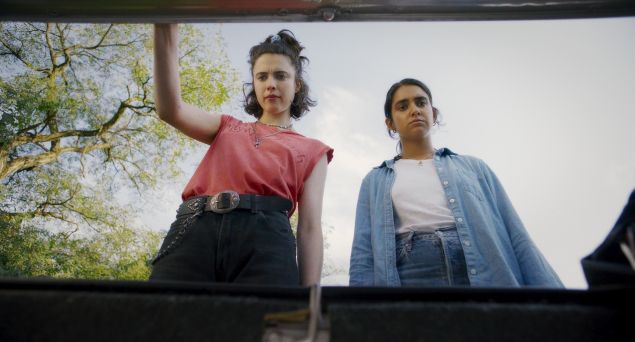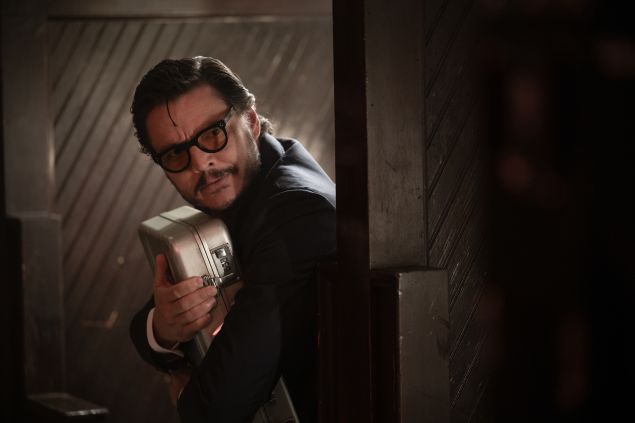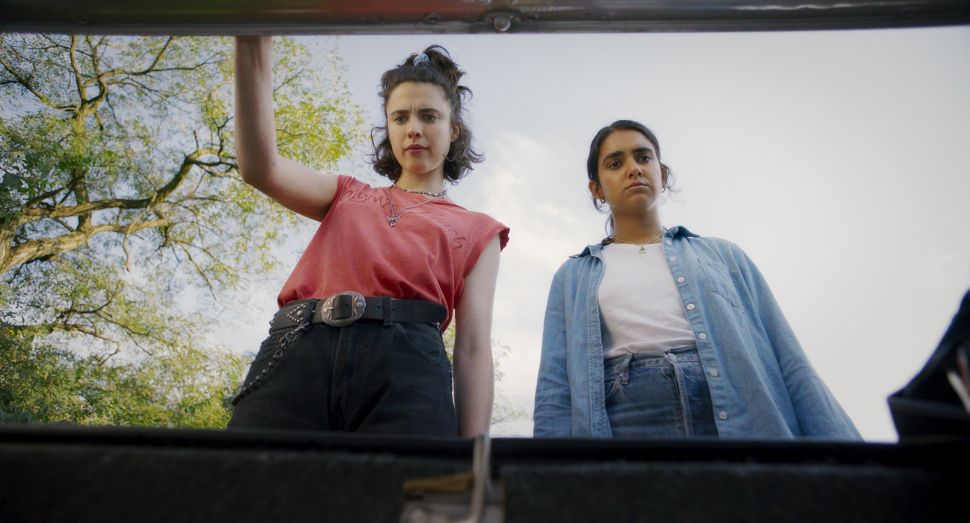
Over the years, the Coen Brothers have developed a distinctive, compelling style of filmmaking, culminating in 2018’s The Ballad of Buster Scruggs. Since then the directors have gone their separate ways—artistically at least. Joel Coen helmed The Tragedy of Macbeth in 2021, an evocative, unsettling take on the iconic Shakespeare play. Drive-Away Dolls marks Ethan Coen’s debut solo feature (he also directed documentary Jerry Lee Lewis: Trouble in Mind in 2022), offering a glimpse into the filmmaker’s personal creative ambitions and inspirations.
|
DRIVE AWAY DOLLS ★★1/2 (2.5/4 stars) |
The film, originally titled Drive-Away Dykes, a far better name for the resulting effort, is a collaboration between Coen and his wife Tricia Cooke, who co-wrote and edited the movie. It’s got an intriguing premise, paying homage to B-movies from the 1960s and ‘70s, but the storytelling itself falters, often mired in shock value for the sake of shock value. Visually interesting with committed performances, it doesn’t quite stick the landing.
Geraldine Viswanathan plays Marian, a young lesbian with a dull job and an uptight demeanor. Her unlikely best friend Jamie, played by Margaret Qualley doing quite the accent, is the exact opposite, a sexed up live-wire who cheats on her cop girlfriend Sukie (Beanie Feldstein) in the opening minutes of the film. The pair head out on a road trip to Tallahassee by borrowing a car from the local drive-away, which rents people cars if they relocate them for the owner. The girls accidentally end up with the wrong car, which holds a mysterious briefcase and the frozen head in the trunk. A group of criminals are hot on their tail, although they are none the wiser.
In theory, it’s a fun story. In execution, it’s a series of scenes and set pieces that never quite gel. Marian and Jamie stop at various locales along the way to Florida, with Jamie encouraging Marian to let down her hair and get laid. This results in hijinks like an all-girl make-out party in someone’s basement and Jamie saying “honey darling” in a Southern accent a lot. By the time they get to Tallahassee, having discovered the contents of their trunk, Jamie and Marian’s relationship shifts, inciting a romance that doesn’t feel earned or true. Pedro Pascal and Matt Damon play small roles, but despite Pascal’s high billing he is barely in the movie. Kudos to Coen, though, for a scene that recalls the actor’s most famous Game of Thrones moment.


On the plus side, Drive-Away Dolls is extremely gay. There’s a lot of sex, all of it between women, and Coen never exploits the girl-on-girl action or makes it feel voyeuristic, although some of it is purposefully wild (see: shock value). Cooke identifies as queer, which clearly helped the film’s authenticity, and the film smartly doesn’t attempt represent all lesbian experiences or tastes. The tone is light-hearted (although critics in my press screening didn’t find the movie particularly funny), and Cooke has said she wanted to make a queer film that isn’t over serious or dramatic. It’s a great addition to the queer movie canon with actresses committed to telling the story.
Drive-Away Dolls never sets itself up to be realistic or grounded—the colorful psychedelic interludes add to this effect—but even in its own version of reality there’s just something missing. It’s stylish with witty dialogue, but for a road-trip movie there’s not much forward motion. And maybe that’s the point. Maybe this is just a whimsical trip with quirky characters and little depth. Maybe we’re never supposed to really understand or care about anyone’s motivation or background. There are great moments and a great idea here. Without that connective substance, though, the car gets stuck in neutral.
Observer Reviews are regular assessments of new and noteworthy cinema.
